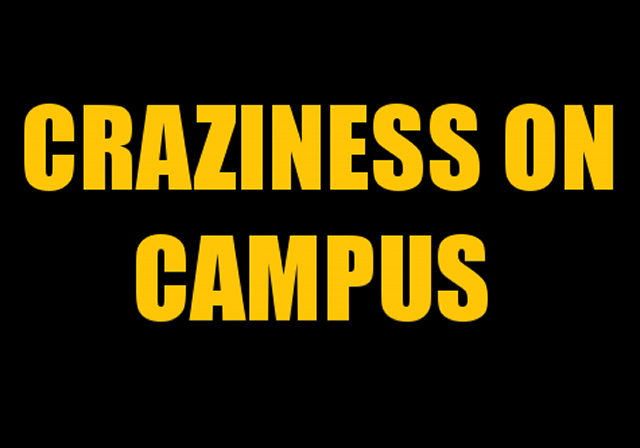Harvard Law School Launching Initiative to Study the Legality and ‘Equity’ of Psychedelic Drugs
“Despite a longstanding prohibition on psychedelics dating back to the 1970s, scientific and public interest in these substances is growing”

Now is an important time to recall that Dr. Timothy Leary lost his job at Harvard after promoting the use of LSD. It’s a shame he’s no longer with us.
Campus Reform reports:
Harvard Law School to launch center for studying legalization of psychedelics, including their ‘equity’
Harvard Law School is launching an initiative to study the legality of psychedelic drugs.
The “Project on Psychedelics Law and Regulation” (POPLAR) will promote “safety, innovation, and equity in psychedelics research, commerce, and therapeutics,” per a university press release.
“Despite a longstanding prohibition on psychedelics dating back to the 1970s, scientific and public interest in these substances is growing,” explained the university, citing the FDA’s 2018 designation of psilocybin as a “breakthrough for treatment-resistant depression.” The school also referred to the recent decriminalization of psychedelics in Oregon.
POPLAR is reportedly “the first academic initiative focused on psychedelics law and policy, positioned to be a global leader for research and education in this space.”
“Right now, there are a handful of psychedelics research centers at universities around the country. However, they are focused on clinical research,” said POPLAR Project Lead Mason Marks in the release. “There is no systematic research being done on psychedelics law, and POPLAR will fill this gap.”
The project will last for three years and will be supported by a grant from the Saisei Foundation, a group that “provides psychiatric diagnostic medical services and inpatient treatment,” according to Bloomberg.
Donations tax deductible
to the full extent allowed by law.








Comments
The use of psychodelics is similar to medical marijuana. MM was useful in a pretty small percentage of chemotherapy cases as an antiemtic. But now it can be applied to every imaginable disorder,and many of those disorders are literally imagined. All the kids who are using the research of micro-dosing of psychodelics as a means to unlock inner spiritual thoughts are operating with the belief that shortly down the road they will be trippin balls every night.
Back when Oregon had petitioners out on the streets to get this issue on the books, I used to look at the petitioners and tell them that they personally were a pretty good argument for why it was a bad idea.
Good post.
I’m actually for legalized MJ for economic reasons but not under the conditions of the government paying for people not to work.
That is an interactive effect disaster for our nation.
I also tire of the fake science cult-like beliefs of the supporters that think everything about it is good while everything bad about it is a lie by the tobacco industry. It defies even child logic that it has all pros and no cons. This fake crap is another “essential oils” scam.
.
Sounds like a variation on the use of “service animals”.
There are studies out there that indicate that there is a legitimate potential in using psychedelics (in a clinical setting) as part of a treatment plan for chronic pain management. Narcotics aren’t a long-term solution, and “suck it up, buttercup” is negligence, so this is something that should be explored, and if it can be used, should be.
Using “equity” as part of your research grant request is the only way it has a chance of getting approved these days.
I’d have to agree that there are good arguments to be made for using these drugs, in moderation and in a controlled environment.
And in any case, is this really less scientific than much of what passes for acceptable practice in psychiatry today?
I suppose there’s a possibility that this may break out of controlled use as “medical” marijuana has, but that’s not what’s being proposed here.